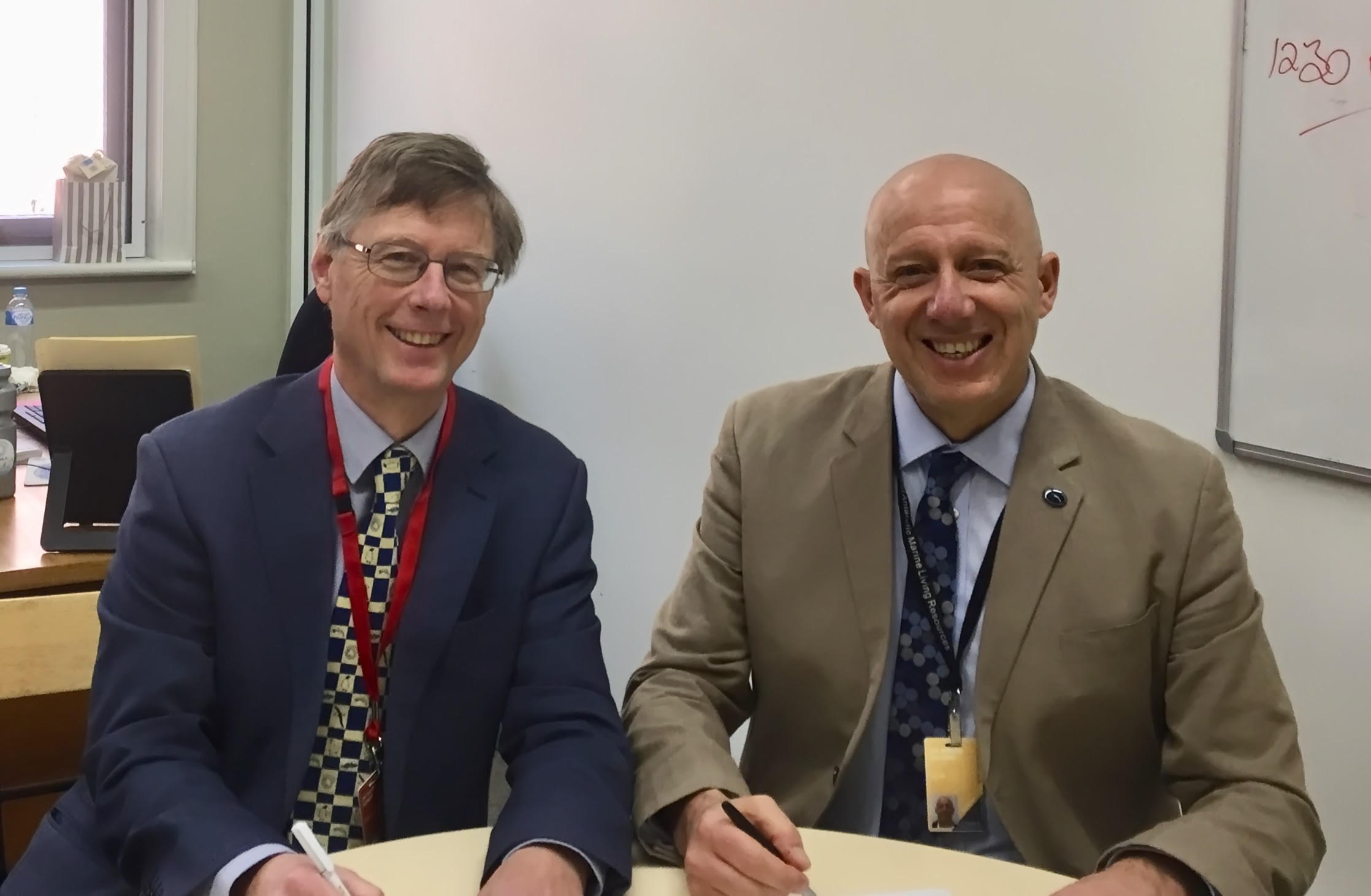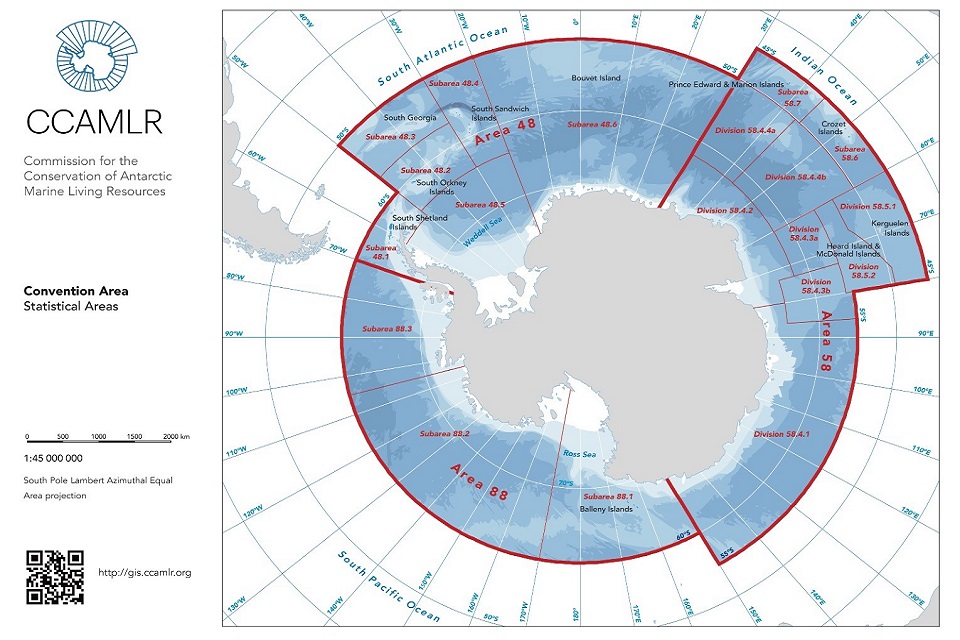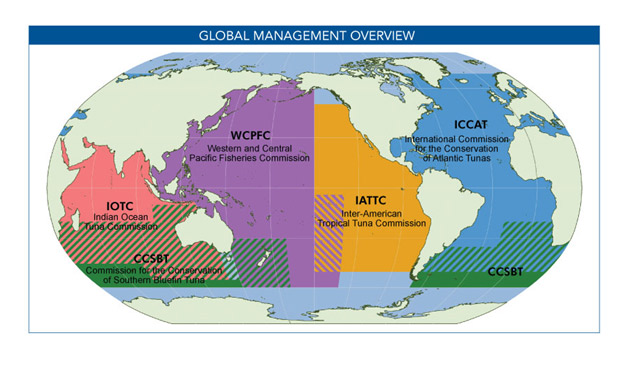During this year’s meeting of the Commission for the Conservation of Antarctic Marine Living Resources (CCAMLR XXXVII) ACAP renewed its MoU with CCAMLR. Outgoing Executive Secretary Marco Favero signed the MoU with the CCAMLR’s Executive Secretary, Dr David Agnew. The new MoU replaces earlier versions first signed in March 2013.

Drs David Agnew, CCAMLR Executive Secretary and Marco Favero, ACAP Executive Secretary, sign the new MoU between the two organizations on 1 November in CCAMLR's offices
Photograph by the CCAMLR Secretariat

The objective of the MoU is to facilitate cooperation between CCAMLR and ACAP with a view to supporting efforts to minimise the incidental by-catch of albatrosses and petrels listed in Annex 1 of ACAP within the CAMLR Convention Area. In terms of the MoU the two bodies may consult, cooperate and collaborate on areas of common responsibilities that are relevant to the conservation, including the protection and management, of albatrosses and petrels, including:
(i) exchange of experience in the development of systems for collecting and analysing data, and exchanging information concerning the by-catch of albatrosses and petrels in the CAMLR Convention Area;
(ii) exchange of information regarding management approaches relevant to the conservation of albatrosses and petrels;
(iii) implementation of education and awareness programs for fishers who operate in areas where albatrosses and petrels may be encountered;
(iv) exchange of information on the design, testing and implementation of albatross and petrel by-catch mitigation measures relevant to fishing operations in the CAMLR Convention Area;
(v) examining the need for, and development of, training programs on conservation techniques and measures in order to mitigate threats affecting albatrosses and petrels;
(vi) sharing of expertise, techniques and knowledge relevant to the conservation of albatrosses and petrels in the CAMLR Convention Area; [and]
(vii) reciprocal participation with observer status at relevant meetings of the ACAP Parties and CCAMLR, consistent with the requirements of CCAMLR and ACAP concerning observer status.
The new MoU with CCAMLR will remain in place for three years, after which it may be renewed or amended.
ACAP has MoUs or equivalent documents with a total of nine other bodies, five of which are Regional Fishery Management Organizations that work to manage tuna stocks on the High Seas outside national jurisdictions (tRFMOs). ACAP works closely with these tRFMOs, attending many of their meetings and offering advice on reducing seabird bycatch in the fisheries they manage (click here to access these MoUs).

Regions covered by the five tuna Regional Fishery Management Organizations:
ACAP has a Memorandum of Understanding with all five, as well as with CCAMLR
John Cooper, ACAP Information Officer, 21 November 2018

 English
English  Français
Français  Español
Español